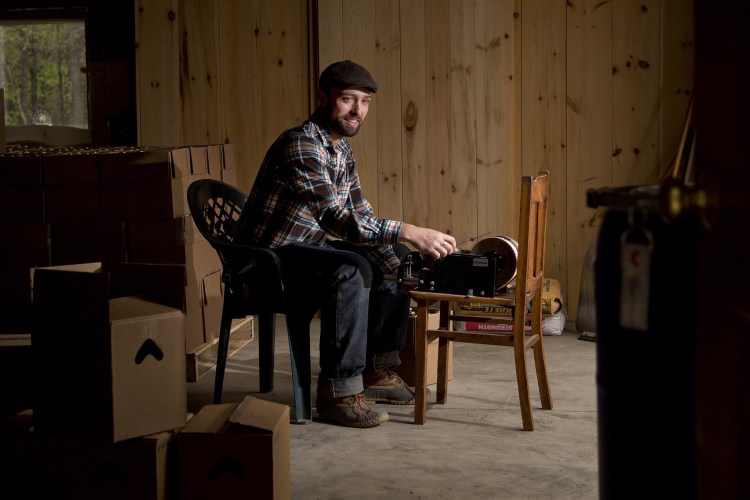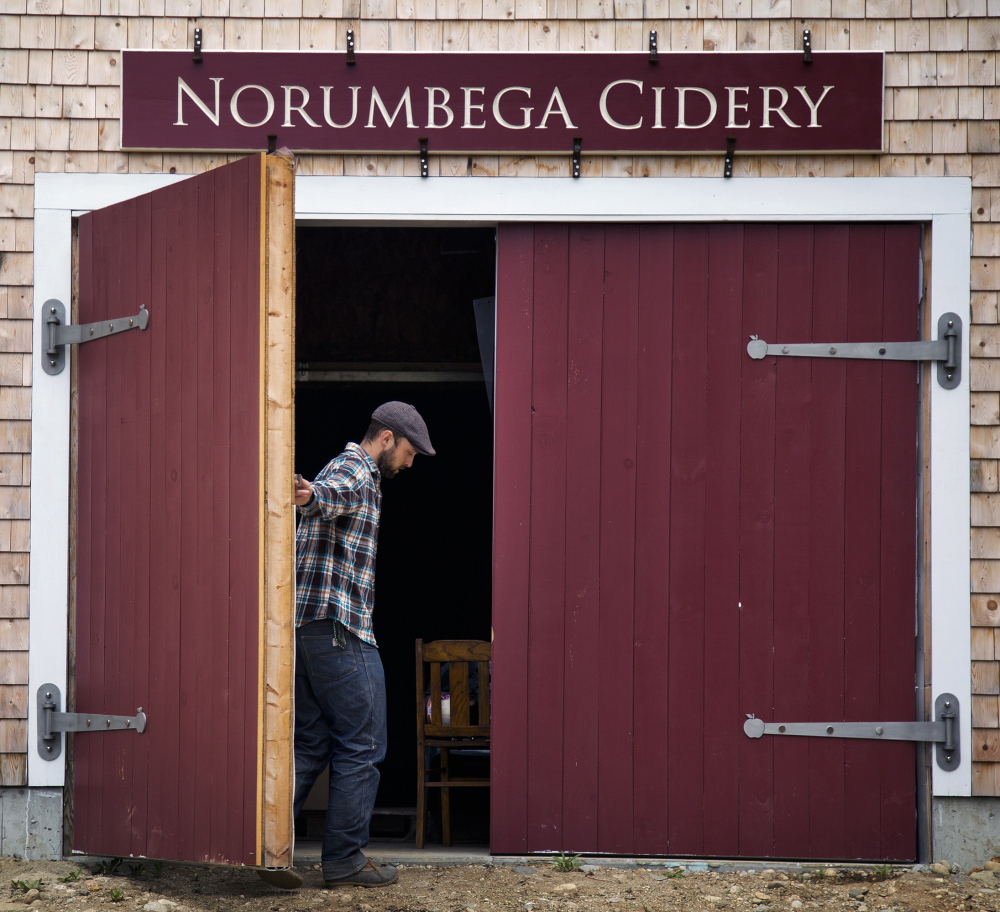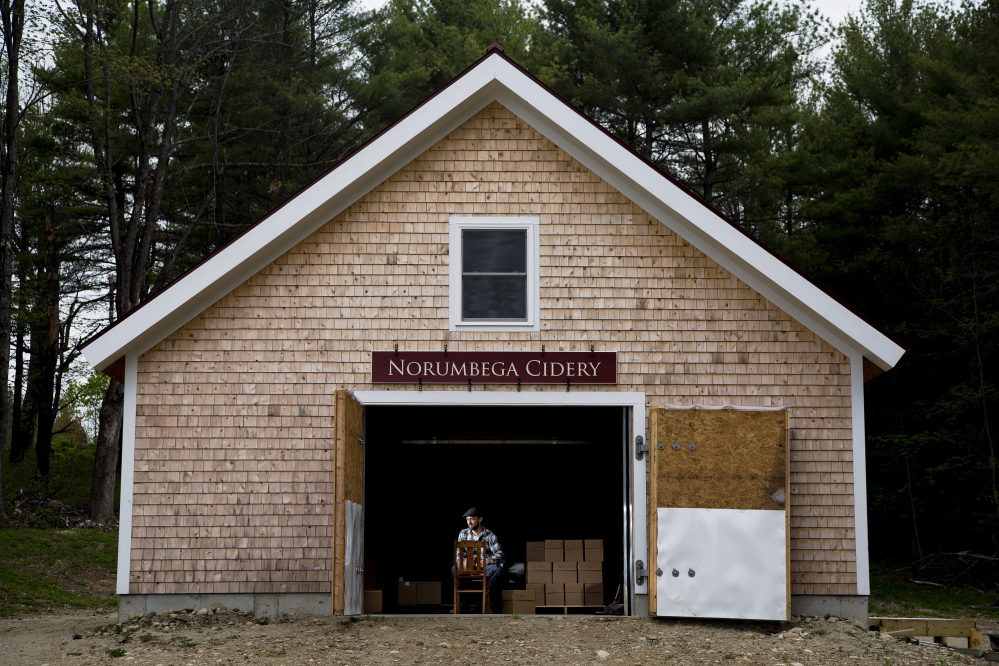Norma Vela has a lot to do on her fledgling family farm in Steuben.
Fencing that needs to be put up so her horses won’t get into the blueberries. A flock of registered Romney sheep need feeding and tending. And a raspberry-blueberry pick-your-own operation is in the works. Vela has no time – or money – to deal with the legal issues that come with owning Dovetail Family Farm.
You might not think such a bucolic operation would have legal issues, but you’d be wrong. Vela needs to incorporate the 72-acre farm and to protect herself from lawsuits related to her horse operation.
So Vela turned to Barry Woods, an attorney at Drummond & Drummond, for free legal advice through a new program – formally launching in Maine on Monday – that provides pro bono services to farmers and food entrepreneurs. The Legal Services Food Hub is a project of the Conservation Law Foundation. It is modeled after a similar program in Massachusetts, and organizers hope it will spread to every New England state.
“It’s just basically protecting us as a farm because there’s a lot of risk in selling to the public, and you’re a small business,” Vela said. “You want to make sure you’re doing it right and following all the rules.”
At least 80 people are expected to attend the launch, at the Verrill Dana law firm in Portland, and U.S. Rep. Chellie Pingree, a farmer herself, is scheduled to speak. About 20 lawyers have already signed on – they come from solo practices all the way up to the largest law firm in the state – but Ben Tettlebaum of the Conservation Law Foundation said attorneys from the northern and Down East parts of Maine are still needed and his group plans to hold further outreach events around the state.
Tettlebaum, who is the project coordinator for the Maine Legal Services Food Hub, said a study conducted by the Farm Commons, a Wisconsin-based organization that helps farmers, found that 70 percent of small businesses in the United States will at some point use legal services, but only 10 percent of farmers will do so. A recent survey of 200 New England farmers conducted for the Conservation Law Foundation found that most don’t use legal services but would if such help were affordable and if they understood its benefits.
“There is a perception that people make use of a lawyer when there’s conflict or potential litigation,” Tettlebaum said. But farmers and food entrepreneurs may need to negotiate contracts, pay taxes, apply for patents (say, for recipes), inherit or pass down property and sign leases. The new Boston Public Market and its vendors, for example, used the Massachusetts Legal Services Food Hub to negotiate their leases and structure the market as a business.
Noah Fralich, owner of Norumbega Cidery in New Gloucester, turned to the Maine hub for help trademarking his brand.
“I got the business started a year and a half ago and had put this off because it was low on the list of things to spend money on,” he said. “It became clear that it was actually something really important to do. I discovered (the legal services hub) right around that same epiphany, and so it was a no-brainer, really.”
Fralich, 30, said help came fast. “Just being able to attack this and have one less thing to worry about in terms of bills was great,” he said.
Other cases are more complicated.
Cynthia Flores has been working Vegetables Dance, a farm in Bethel, for 16 years with her life partner. At 43, she says she is stuck with what she calls “not pretty legal issues.”
“I have no lease agreements, and we are not married,” she said. “My need is a business contract as well as a need for protecting myself in the event that either he and I split at some point down the road or something happens to him, because I have made structural improvements on his land but have no legal rights.”
Flores had tried to find an attorney to help her, but wasn’t sure where to go – a business attorney? A divorce attorney, even though she isn’t married?
After she heard about the Legal Services Food Hub at the Maine Agricultural Trade Show, she called Tettlebaum. Her case is not yet resolved, but she feels less anxious now and estimates she will save hundreds of dollars in attorney fees.
According to agricultural census data cited by Tettlebaum, about 61 percent of farms operate at a net loss every year, so many farmers in the state can’t afford to hire a lawyer. To participate in the Maine Legal Services Food Hub, farmers or entrepreneurs must meet the following criteria:
• The net annual income of the operation cannot exceed $30,000.
• Household income must be below 400 percent of the federal poverty level.
• The farm or food business must have grossed at least $5,000 in the past year, or be under three years old.
Barry Woods, the Drummond & Drummond attorney who is helping Norma Vela, said his firm is taking on these cases in the hope that as these businesses grow and become profitable, they’ll turn to his firm for future legal needs. The firm, he said, is trying to develop a “sustainability-oriented client base” in the areas of food and energy. The Conservation Law Foundation program happened to come along at about the same time.
“It’s been a good match,” he said, “and it will be a really good opportunity to grow this sector in Maine.”
Woods said the hub’s lawyers can help a typical farmer save thousands of dollars on legal fees – and that’s being “judicious and conservative.” Setting up a typical Limited Liability Company business structure, for example, usually costs a flat fee of $500 to $600, Woods said. And that’s just one transaction.
Vela is grateful she can use the money she saved on lawyers to put up fencing and to buy feed. The money she’d have spent to incorporate the farm is about the same as a month’s worth of feed, she said.
“But mostly, for me personally, there’s a feeling of security,” Vela said. “I can call Barry, and if he doesn’t know, he can find out.”
This story was updated at 11:42 a.m. on Thursday, May 21, 2015 to correct the household income criteria to participate in the Maine Legal Services Food Hub.
Copy the Story Link
Send questions/comments to the editors.






Success. Please wait for the page to reload. If the page does not reload within 5 seconds, please refresh the page.
Enter your email and password to access comments.
Hi, to comment on stories you must . This profile is in addition to your subscription and website login.
Already have a commenting profile? .
Invalid username/password.
Please check your email to confirm and complete your registration.
Only subscribers are eligible to post comments. Please subscribe or login first for digital access. Here’s why.
Use the form below to reset your password. When you've submitted your account email, we will send an email with a reset code.